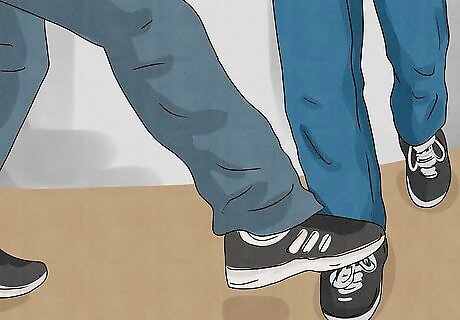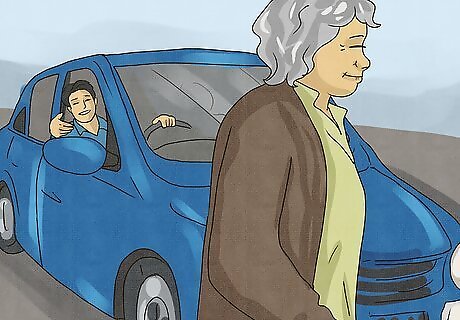
views
X
Research source
Don’t worry—while this is a pretty abstract topic, we’ve outlined some common causes of negative karma, as well as ways you can improve your karma in the future.This article is based on an interview with our spiritualist and seer, Jennifer McVey, Cht. Check out the full interview here.
Causes of Negative Karma

Wallowing in negative thoughts can lead to negative karma. According to Buddhist culture, experiencing negative thoughts and feelings is enough to create negative karma. After all, your actions are connected to your thoughts and ideas. So, whenever you stew in feelings of bitterness, jealousy, or other negativity, you’re actually generating negative karma for yourself. Here are a few examples: Feeling jealous of a friend’s new car Feeling bitter about a co-worker’s promotion Feeling angry at another driver on the road

Saying something negative and hurtful can create bad karma. Karma is deeply connected with the things you say to others. Saying something with harsh, cruel, and negative intentions creates negative karma, no matter who you’re talking to. These are a few examples: Snapping at a relative over the phone Yelling at someone during work Sending a hurtful message online

Intentionally hurting another person is a cause of negative karma. The intentions of your actions are what matters when it comes to karma. This could be something extreme, like hurting an animal, or something minor, like shoving past someone while walking on the street. Any action that ignores and dismisses the health and safety of another living thing can create negative karma. Here are some actions that can create negative karma: Driving dangerously without caring for anyone else on the road Causing someone to trip and fall

Refusal to grow and learn may contribute to bad karma. Some spiritual communities use the “12 laws of karma” to help better explain the role that karma plays in life. One of these laws is the “Law of Change,” which states that people need to learn and grow from negative patterns in order to experience positive change. Some examples of negative patterns could be: Constantly interrupting people during conversations Not giving your full attention to a friend or loved one Not putting 100% effort in at your job

Making constant excuses may negatively influence karma. Another common law of karma is the “Law of Responsibility,” which states that each person is responsible for what they go through in life. If you try to pass the buck to someone else, you may be creating negative karma for yourself. A few examples could be: Blaming your boss for not giving you a promotion Sticking all of the blame on a friend during an argument
Solutions to Improve Karma

Identify the negative patterns in your life. Do you seem to find yourself in the same situation over and over again? Maybe you’re struggling to pay the bills each month, or the company you work for doesn’t get as many customers as it used to. If the same negative thing tends to happen over and over again, it could be a result of negative karma. Here are a couple of examples: You never get a raise or promotion at your job You’re constantly in and out of failing relationships

Take responsibility for the harm you did in the past. It’s nearly impossible to tie your current bad luck and circumstances to a specific past moment (or moments) of negative karma. You can still own up to these actions, though! Take a moment to acknowledge and admit that you’ve done some negative things in the past, and that you’re ready to take a positive step towards the future. You might say: “I’ve definitely done and said some hurtful things in the past, and I might be experiencing the negative karma of those actions now. Still, I’m determined to grow, improve, and be the best version of myself.” “I acknowledge and apologize for the negativity of my past. I’m ready to take a step forward and live a more positive life.” Go easy on yourself! Taking responsibility isn’t about beating yourself up and feeling guilty—it’s about changing your perspective.

Counter-act your past negativity with positive actions. Brainstorm ways to help other people who are stuck in the same negative patterns and situations as you. By taking strides to help others, you’ll actually be helping yourself in the process! Here are a few ideas: If you’re struggling with your relationships, you could start a relationship advice blog to help other people in your situation. If you’re running low on money, you could meet up with a friend who’s experiencing similar financial woes and develop a budgeting plan together. If you’re constantly stuck in traffic, make an effort to be kinder and more compassionate to other drivers on the road.

Practice being mindful and present every day with meditation. Focus completely on what’s happening in the moment instead of planning what you’re going to do next. Meditation is a great way to practice stilling your thoughts, focusing on your breathing, and taking in the world around you. Mindfulness gives you a chance to observe what’s going on around you instead of jumping straight into action, which may help reduce your negative karma.

Approach future situations with good intentions. Take a moment to think before you do or say something, especially if you’re entering a difficult situation. Try to approach all conversations and circumstances with kindness, compassion, and generosity instead of bitterness and negativity. You might: Give a friend the benefit of the doubt instead of jumping to conclusions Offer to pay from a stranger’s drink when they’re a few dollars short Congratulate a person on their success instead of feeling jealous According to the “Great Law” of karma, people should embody what they hope to receive. In other words, if you want a life full of love and kindness, you should approach each day with a loving and kind attitude.

Prioritize one goal at a time. Don’t try to change and improve every aspect of your life at once; instead, follow the karmic “Law of Focus.” This law states that you should focus on 1 goal at a time, rather than putting a little bit of energy toward multiple goals at once. Start with a small goal and slowly work your way up to more important aspirations. Here are some examples: If you have a tendency to lash out at people, your first goal could be learning some breathing exercises. Your next goal could involve talking to people politely during a conversation. If you constantly feel jealous of others, your first goal could be identifying your jealous thoughts. Then, you could focus on counting your blessings and congratulating others on their success.




















Comments
0 comment